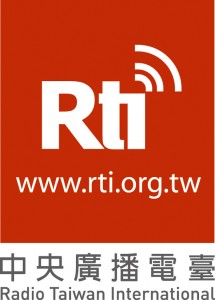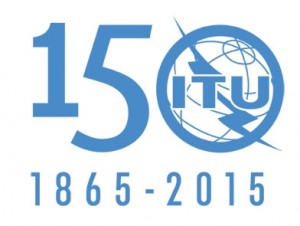 PCJ International has noted a special two hour transmission on March 14th, 2015 from 2300 to 0100 UTC on 7,570 kHz.
PCJ International has noted a special two hour transmission on March 14th, 2015 from 2300 to 0100 UTC on 7,570 kHz.
Though no details have been released yet, Keith Perron has noted that they plan to give away listener prizes.

 Only moments after posting news that Andrew Lack may be leaving the BBG CEO position to rejoin NBC, the website BBG Watch has confirmed Lack’s departure.
Only moments after posting news that Andrew Lack may be leaving the BBG CEO position to rejoin NBC, the website BBG Watch has confirmed Lack’s departure.

Jeff Shell, Chairman of the Broadcasting Board of Governors, congratulates Andy Lack after swearing him in as the first ever CEO of U.S. international media. (Image Source: BBG Press Release)
Many thanks to Dan Robinson, who shared links to several news stories that propose Andrew Lack may be leaving the CEO position of the Broadcasting Board of Governors to return to NBC.
Here’s a clip from the Washington Post:
Former NBC news president and former Bloomberg Media chairman Andy Lack, who was brought in to fix the perennially troubled U.S. international media operations, is leaving after just six weeks on the job.
[…] Lack is in negotiations with NBC News to return to a top job there, according to report Tuesday in Variety, the entertainment news publication, dashing the hopes of State Department and BBG officials who wanted the high-powered media executive to energize U.S. overseas media operations.
The negotiations were spurred, Variety noted, by the crisis set off at NBC News by the Brian Williams debacle and suspension.
So rather than right the ship at BBG — he had talked about growing the operation, not cutting it — Lack is apparently going off to right the other ship.”
Indeed, this story was featured in the following news sources:
If Andy does make the move, we’ll post an update.
 SWLing Post reader, David Iurescia, reminds us that February 25th, 2015 was Radio Canada International‘s 70th anniversary.
SWLing Post reader, David Iurescia, reminds us that February 25th, 2015 was Radio Canada International‘s 70th anniversary.
While we can no longer hear RCI on shortwave, David points out that we can listen to some of the anniversary specials (interviews and programs) online all week:
http://www.rcinet.ca/en/2015/02/26/rci-celebrates-its-70th-anniversary/
Many thanks for the tip, David!
 Many thanks to SWLing Post reader, David Iurescia, who relays this translated message from Radio Taiwan International:
Many thanks to SWLing Post reader, David Iurescia, who relays this translated message from Radio Taiwan International:
Frequency test for South America between 5 – 7 March, 2015
Looking for alternatives to transmit our programming to South America, Radio Taiwan International will carry out test transmissions frequency to the region from Thursday March 5 until Saturday March 7, 2015 through 11920 kHz frequency in the 0200-0300 UTC .
We request the cooperation of our listeners friends who are in the South American countries , to verify that signal and send us reports of listening to the new test frequency to our e- mail soon: [email protected]
Many thanks for your help!
Many thanks, David! Perhaps some of listeners can help RTI by sending a listener report and also record a broadcast for the SW Radio Audio Archive.
I’m happy to relay that David Goren’s Shortwave Shindig will once again broadcast live from the Winter SWL Fest in Plymouth Meeting, Pennsylvania.
Tune in on Friday, February 27, 2015 from 22:00-23:00 EST (that’s 03:00-04:00 UTC, February 28) on 7,570 kHz.
Since I will be at the Winter SWL Fest and even a part of the Shortwave Shindig live broadcast, I’m hoping a few SWLing Post readers will record the show and share with us.
Also, if you’re in the Plymouth Meeting area, please consider joining us at the Winter SWL Fest.
If you would like to hear recordings of the Shortwave Shindig from 2014, click here.
Click here to check out David Goren’s website, Shortwaveology.net.
Today is World Radio Day, a time “to remember the unique power of radio to touch lives and bring people together across every corner of the globe,” UNESCO reminds us. As shortwave radio listeners, we understand this power of information without borders.
Here are a few ways you can celebrate World Radio Day 2015…

In Belize, ETOW works with visually impaired children through our partner and friends at the Belize Council for the Visually Impaired. Photo by ETOW volunteer/supporter, David Korchin (K2WNW). Click to enlarge.
Of course, at my non-profit, Ears To Our World, we celebrate the unique power of radio everyday as well.
Indeed, we’re in the process of preparing at least another 100 radios for Sierra Leone, where children are receiving education over the airwaves as schools have been closed in an effort to stop the spread of Ebola.
If you would like to help us, please consider a donation of any amount. Certainly a meaningful way to give the gift of radio and education.
If you can get on the air today, there are a few events happening around the world you might be able to catch:
SWLing Post reader, Greg (VA7BC), passes along this announcement from the ARRL:
“The World Heritage Grimeton Radio SAQ in Sweden plans to fire up its Alexanderson alternator on 17.2 kHz on the occasion of UNESCO World Radio Day, Friday, February 13. The station will begin tuning at 1430 UTC, and a message will be transmitted at 1500 UTC.
A message with a theme of “peace” has been put together by more than 200 citizens of Varberg, Sweden, via the “Varberg Calling for Peace” project.
SAQ will not be issuing QSL cards nor post a list of reports, but it will accept brief listener reports. The Grimeton site’s Amateur Radio station SK6SAQ will be active, using a special event World Radio Day call sign — 7S6WRD. Frequencies: 7035 kHz or 14,035 khz, CW, and 3755 kHz SSB. QSL to 7S6WRD via SM bureau.“
Read the full article at the ARRL website. I will certainly attempt to hear this broadcast on 14,035 kHz CW.
If any SWLing Post readers are able to record the SSB transmission on 3,755 kHz, I would love to add the audio to our audio archive.
 The Southgate ARC reports that ABU members will particiapte in a round-the-world broadcast relay:
The Southgate ARC reports that ABU members will particiapte in a round-the-world broadcast relay:
“On Friday 13 February 2015, participating broadcasters around the globe will devote at least half-an-hour of their programming to the WRD 2015 themes “Innovation and youth in radio”.
The main organisers, the European Broadcasting Union, in partnership with the ABU and other broadcasting unions, will also offer three short optional pre-recorded radio features devoted to Radio and Youth, Radio and Innovation and the History of Humanitarian Use of Radio: UN Radio.
The segments can be used whole or in part in a time slot of each station’s choice. Most of the features will also be available with scripts in French, Russian, Spanish, Arabic and Chinese, thanks to the UN.
Speeches by UN personalities will also be available ready to use on air, plus a one-hour rights-free concert live from Geneva by the UN Jazz Orchestra will be made available.
Organisers say that, as this will be a relay following the world’s time zones, there will be a succession of radio stations each handing over to the next participant throughout the day.
To give listeners around the world the chance to follow this special WRD program, the broadcasts will be put on an Internet stream, coordinated via the EBU in Geneva.
http://www.abu.org.my/Latest_News-@-World_Radio_Day_relays_round_the_world.aspx“
 Again, the Southgate ARC reports via the ARRL:
Again, the Southgate ARC reports via the ARRL:
“The ITU International Amateur Radio Club station in Geneva will use the special call 4U0ITO to mark World Radio Day on Friday, February 13
The ARRL report this event also marks the kickoff for the International Telecommunication Union 150th anniversary.
International Amateur Radio Union President Tim Ellam, VE6SH, will inaugurate special call sign 4U0ITU at 0900 UT. He will be accompanied by ITU Secretary General Houlin Zhao, other elected officials and VIPs.
The IARC will use the 4U0ITU call sign until the World Radiocommunication Conference 2015, November 2-27.
World Radio Day commemorates the first broadcasts of UN Radio in 1946.”
 Many of your favorite shortwave broadcasters will dedicate a portion of their programming to World Radio Day.
Many of your favorite shortwave broadcasters will dedicate a portion of their programming to World Radio Day.
This is the perfect day, as a listener, to let your favorite broadcasters know you’re listening! Send in a proper QSL report–mention the time, frequency and type of programming you heard. Give the broadcaster a proper signal report as well (click here to read about the universally accepted SINPO code). Broadcasters love to hear about any insight you pulled from their news items or reports–the more detail, the better. And thank them for broadcasting over shortwave.
You can typically find contact information on the broadcaster’s website. If you have any difficulty, please comment and I, or another reader/contributor, will try to help.
It’s been fun to see how World Radio Day has grown over the years. I believe it’s a wonderful reason to celebrate all that we love about radio.
To celebrate World Radio Day 2013, UNESCO asked me to record why I believe radio is relevant today. Here was my response: